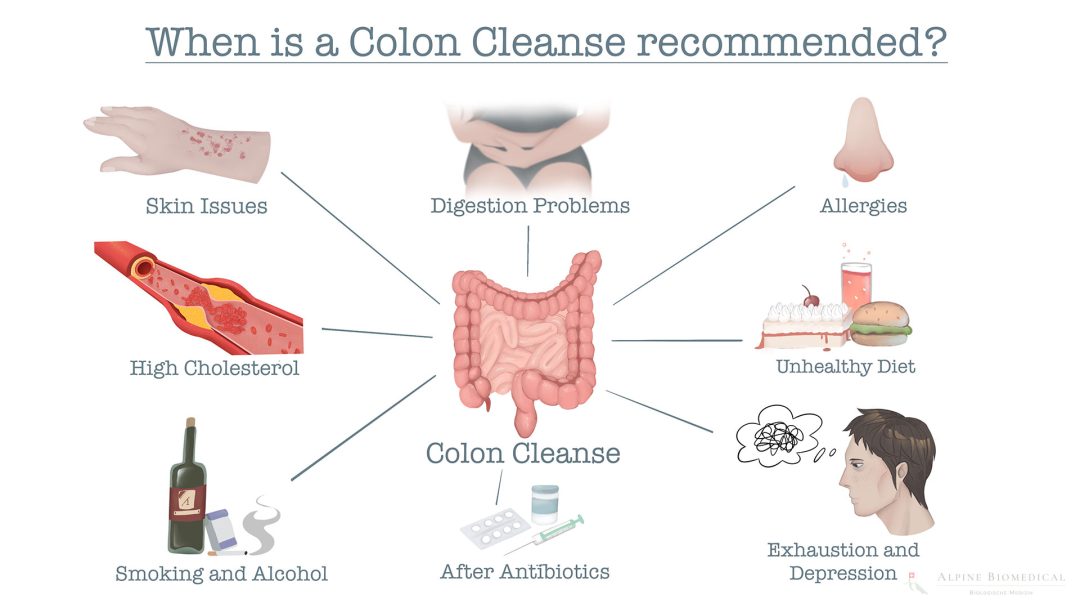Intestinal Cleanse

Intestinal cleansing is a therapeutic measure that aims to promote intestinal health and restore the balance of the intestinal flora. In this holistic perspective, the recognition that an intact intestinal flora plays a key role in overall well-being is coming into focus, and Hippocrates’ words, “all disease begins in the gut” are becoming increasingly important.
Factors such as antibiotics, environmental toxins, unhealthy diet, smoking, alcohol and stress can disrupt the balance of gut bacteria, which can lead to various health problems, including exhaustion, concentration problems and inflammation. The effects of intestinal disorders go beyond classic digestive problems, allergies and food intolerances. Immune disorders, skin diseases, headaches, psychological complaints such as depression and sleep disorders as well as addictions can also be linked to a damaged gut.
Gut-Brain Axis
The explanation lies in the gut-brain axis, whereby the gut is referred to as the “second brain” and is closely connected to the central nervous system. The vagus nerve, as the longest cranial nerve, acts as a biological communication system between the gut and the brain. This bidirectional connection (running in both directions) enables close interaction between the gastrointestinal tract and the brain, regulating various physiological processes, including digestion, the immune system and even emotional well-being.
Intestinal cleansing aims to correct the imbalance of the intestinal flora, which can be affected by various factors. An individual approach is essential, as each person has specific requirements. Today, gut rehabilitation is increasingly seen as an integral part of holistic medicine, with experienced therapists playing a crucial role in understanding and implementing it. This not only emphasises the importance of the gut for physical health, but also considers the connection between the gut and brain in a comprehensive, holistic approach to health.
Intestinal Cleansing Methods
Bowel cleansing procedures include taking probiotic supplements, prebiotic fibre-rich foods to promote healthy intestinal colonisation and avoiding potentially harmful substances.
Methods such as home enemas, professional colonic irrigation (colon hydrotherapy) and therapeutic fasting can also be effective.
It is important to emphasise that colon cleansing is unlikely to be successful without a specific change in diet.
In the case of severe intestinal disorders such as leaky gut (increased intestinal permeability) or mal-colonisation of the small intestine (SIBO), individually planned pre-treatment should be carried out first.
Dr. med. Karsten Ostermann M.A.
Cooperation with qualified and experienced therapists is necessary to ensure comprehensive and safe intestinal cleansing.

Further information
Further information intended to give a better overview of the topic.